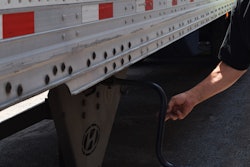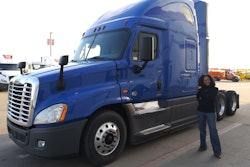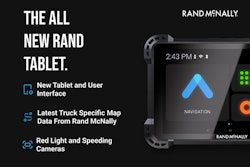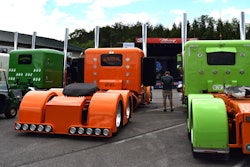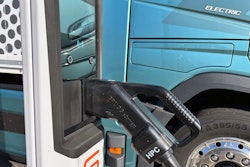Previously in this series: To own or not to own a trailer: How COVID fast-tracked an explosion in power-only opportunity
When Timmons Transit was just beginning to hit a growth stride with new power-only opportunities through large broker C.H. Robinson, a story told in brief in Part 1 of this "Niche Hauls" series focused on growth in power-only opportunities for independents with motor carrier authority, owner-operator Tim DeWitt had just one truck, pulling Prime-owned trailers on the power-only side of the large carrier/brokerage's refrigerated business.
His DeWitt Transportation operation didn't sit there for much longer, though. In 2019, at the urging of contacts at Prime, he bought another truck and brought on a driver, continuing to drive himself. In 2020, the growth spurt in reefer freight, partly as a result of the pandemic, brought him off the road with further truck investments. The 2021 Overdrive Small Fleet Champ semi-finalist DeWitt Transportation is now a 34-truck business, hauling exclusively power-only in the Prime system.
"They have way more freight available to them than they have the ability to cover" with either owned fleet trucks or leased owner-operators, DeWitt said. It's particularly true today given large fleets' growth limitations with owned equipment, but in some ways it's nothing new. "Prime’s been like that for quite a few years" in terms of freight volume, DeWitt added. Prime's system for his power-only fleet operates in ways that are similar to a small-fleet or owner-operator leasing model in that his revenues are defined on a percentage-of-every-load basis.
“I give up a significant percentage to Prime,” he said, and in exchange the business benefits from fuel discounts, outsourced maintenance and parts procurement at reasonable rates through the buying power of the large fleet and its extensive terminal network.
Dispatch is outsourced, too through Prime's brokerage, freeing up time for DeWitt to focus closely on his business's relationship with its most important resource -- its drivers. DeWitt's worked hard to secure health-insurance options for drivers, partially company paid. And the weekly guaranteed-pay system he's put in place keeps income for those drivers somewhat predictable, eliminating driver consternation over short hauls -- or the large amounts of deadhead that can be common for power-only operators -- when paid on a miles basis.
Those outcomes reflect a couple of different advantages earmarked by Overdrive readers as benefits of power-only trucking in Overdrive's recent survey.

